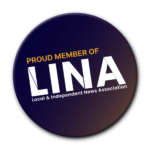Council’s Privacy Management Plan is based on the provisions of two State Government Acts covering health records and personal privacy.
The plan covers staff; any person or organisation contracted to or acting on behalf of Council; and “all activities of the Council”.
“All activities of the Council” is where the general public comes in. More on that after we deal with the staff and their privacy.
Personal information defined as information or opinions about a person where that person’s identity is apparent or can be reasonably ascertained from the information or opinion.
What is NOT personal information?
- Information about a person who has been dead for more than 30 years;
- Information or an opinion about a person’s suitability for appointment or employment as a public sector official; and
- Information about someone that is contained in a publicly available publication.
Examples of health information could be a psychological report or blood tests, results from drug or alcohol tests and information about a person’s medical appointments.
The report says Council has a Privacy Contact Officer and part of their role is to create awareness about this Plan.
“Council ensures its staff are aware of and understand this Plan, particularly how it applies to the work that they do,” the plan states.
“Council has written this Plan in a practical way to ensure that staff members can understand what their privacy obligations are, how to manage personal and health information in their work and what to do if they are unsure.”
How does this affect the public?
If someone makes an enquiry or writes to Council, a full copy of whatever is sent is saved by Council in its electronic document management system or in a hard copy file.
However, if someone calls over the phone and gives a lot of background information, Council may decide not to record all the personal information if it is irrelevant to the enquiry.
If someone wants to remain anonymous, Council will provide clear information regarding the consequences of remaining anonymous.
For example, anonymous complaints concerning barking dogs are not investigated and it will be up to the person who contacted Council to decide whether they want to continue with the complaint or not.
Council’s telephones will display the number of the person who has called, except for private and/or silent numbers.
Telephone numbers that are displayed are stored and can be extracted from Council’s phone system for reporting purposes.
All incoming and outcoming phone calls with Council’s Customer Contact Centre (1300 463 954) are recorded and saved; the customer does have the option to opt out or decline to be recorded.
Council operates an online Customer Service Portal that allows members of the public to report issues or concerns, ask questions or leave feedback.
Users are required to provide their name, address, phone number and/or email address when submitting a query.
Anonymous complaints made through the Portal are unable to be tracked by the complainant and they will not receive updates on their request.
Contractors acting on behalf of Council may collect personal or health information.
Council includes a set of standard conditions and clauses in its contracts that require contractors to comply with the relevant and/or appropriate privacy obligations.
An individual must be informed or made aware as to why their personal information is being collected, what Council will do with it and who may have access to it.
Council will also explain whether the supply of the information is required by law or is voluntary and if there are any right of access or the information.
Council has a range of functions that involve the collection of an individual’s personal or health information.
These include (but may not be limited to):
- Levying and collecting rates;
- Providing services (e.g. libraries and waste collection);
- Consultation with the community, visitors, businesses and other stakeholders;
- Assessing development and other major project applications;
- Recording, investigating and managing complaints and allegations;
- Site inspections and audits;
- Incident management;
- Enforcing regulations and legislation;
- Issuing approvals, consents, licences and permits;
- Providing funding grants;
- Maintaining the non-residential register of electoral information;
- Employment; and
- Fitness for work.
Council may collect personal or health information in any of the following ways:
- Incident reports;
- Photographs;
- Written correspondence;
- File notes;
- Medical assessment reports;
- Submissions;
- Application forms;
- CCTV footage;
- Public registers;
- Booking platforms;
- Financial transaction records;
- Contracts;
- Telephone enquiries;
- Counter enquiries; and
- Online services.
The policy is 50 pages and is on the Council website.


